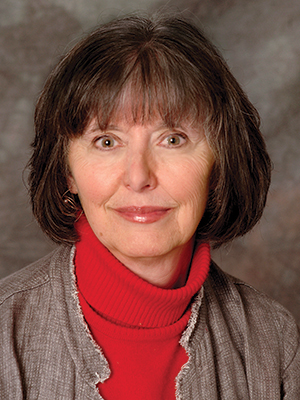
Hester Hill Schnipper Photo courtesy of Beth Israel Deaconess Medical Center
IN THE NOT-SO-DISTANT PAST, there were two ways to be living with cancer. The first was to be diagnosed, treated, and hoping to be done with cancer. The second was to be dying from a cancer that returned or was initially diagnosed as metastatic disease.
Today, blessedly, many patients with metastatic disease, which is also known as stage IV or advanced cancer, live a long time, even though their disease is not curable. These patients who are not completely healthy but certainly not dying from cancer anytime soon can find themselves in murky and uncharted territory.
Learning to live with terminal uncertainty, to make sound decisions for yourself and your family, and to maintain a balanced and mostly positive daily view are challenging goals. But, in the words of an old saying, “Nothing flies in the face of death like a life well lived,” and your most important goal should be just that: to live well.
These strategies can help:
1) It is vital to find a medical team that you trust, respect and can communicate with. You’ll need their help and support to make difficult decisions and navigate these challenges. You don’t necessarily need to go to a top-rated cancer center, but you need a doctor who will help you get to one if treatment offered there can help you.
2) Think carefully about sharing information regarding your health status. You certainly will want the support and affection of your family and close friends, but some people may react surprisingly by avoiding you, being overly emotional or saying hurtful things.
3) Be wary of sharing information at work. If you talk with human resources to learn about your sick leave benefits, you do not have to share details of your illness. You can say something like “I am going to need ongoing treatments and flexibility to schedule medical appointments.”
4) Take care of any undone business, such as wills, health care proxies and advanced directives. Once these tasks are done, put them aside and concentrate on living.
5) Consider making and acting on a bucket list.
6) Think about creating a let-it-go list by asking yourself, “Will this matter in a week or year?”
7) Take the absolute best care of yourself. Be nicer and more generous with yourself than you would be with your best friend. Eat well, exercise and get enough sleep.
8) Consider joining a support group. No one can understand your challenges as well as others living through the same experience.
9) Denial can be a wonderful thing. You don’t have to think about cancer every minute of every day. As long as you’re taking care of yourself and doing what your doctor recommends, you can try to focus on other things.
10) Call a friend, go to a movie or take a walk. Make sure to schedule something you enjoy on your calendar every single day.
11) Practice meditation, mindfulness and living in the present to quiet your mind and find peaceful stillness. This very minute is the only thing any of us have.
Cancer Today magazine is free to cancer patients, survivors and caregivers who live in the U.S. Subscribe here to receive four issues per year.




